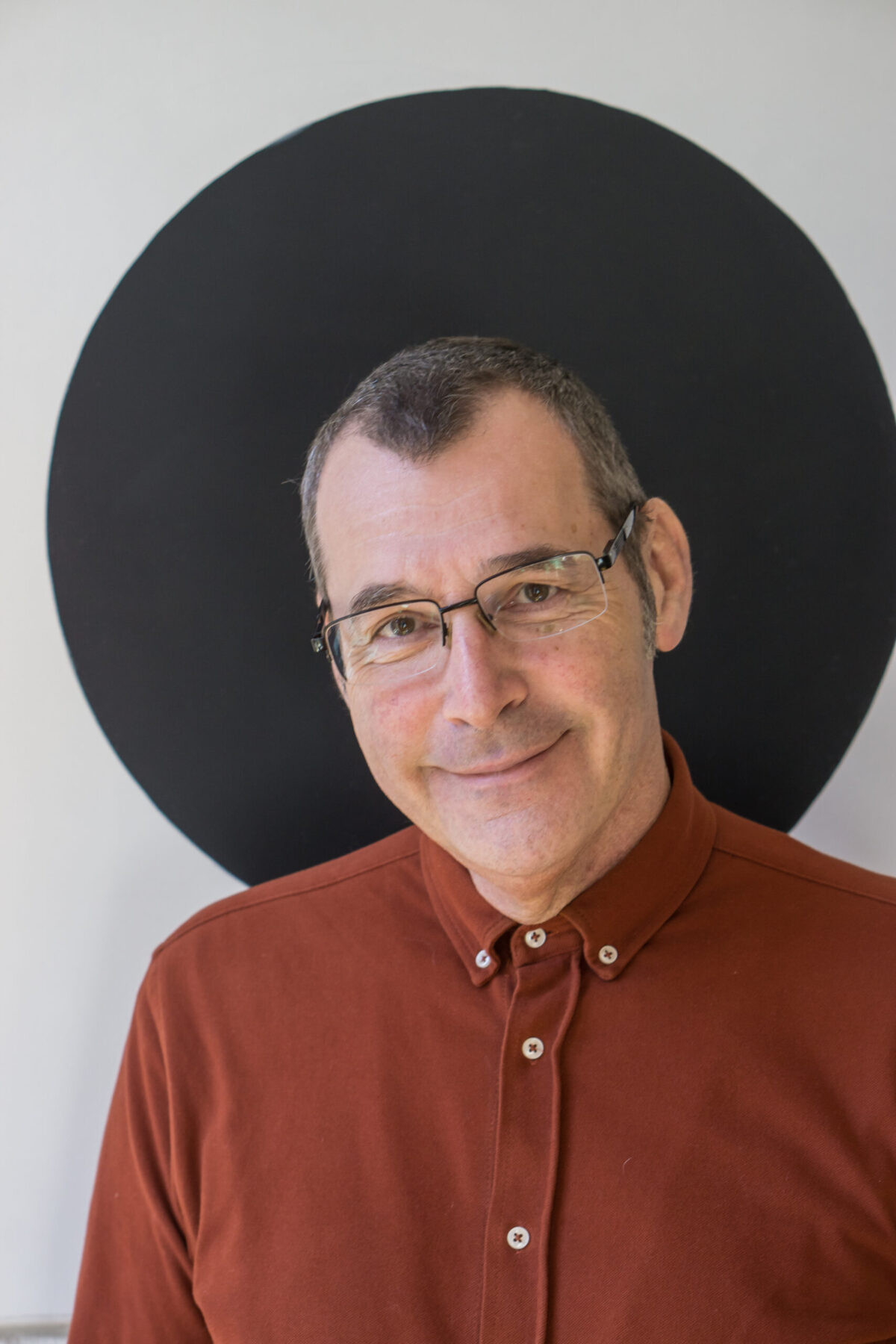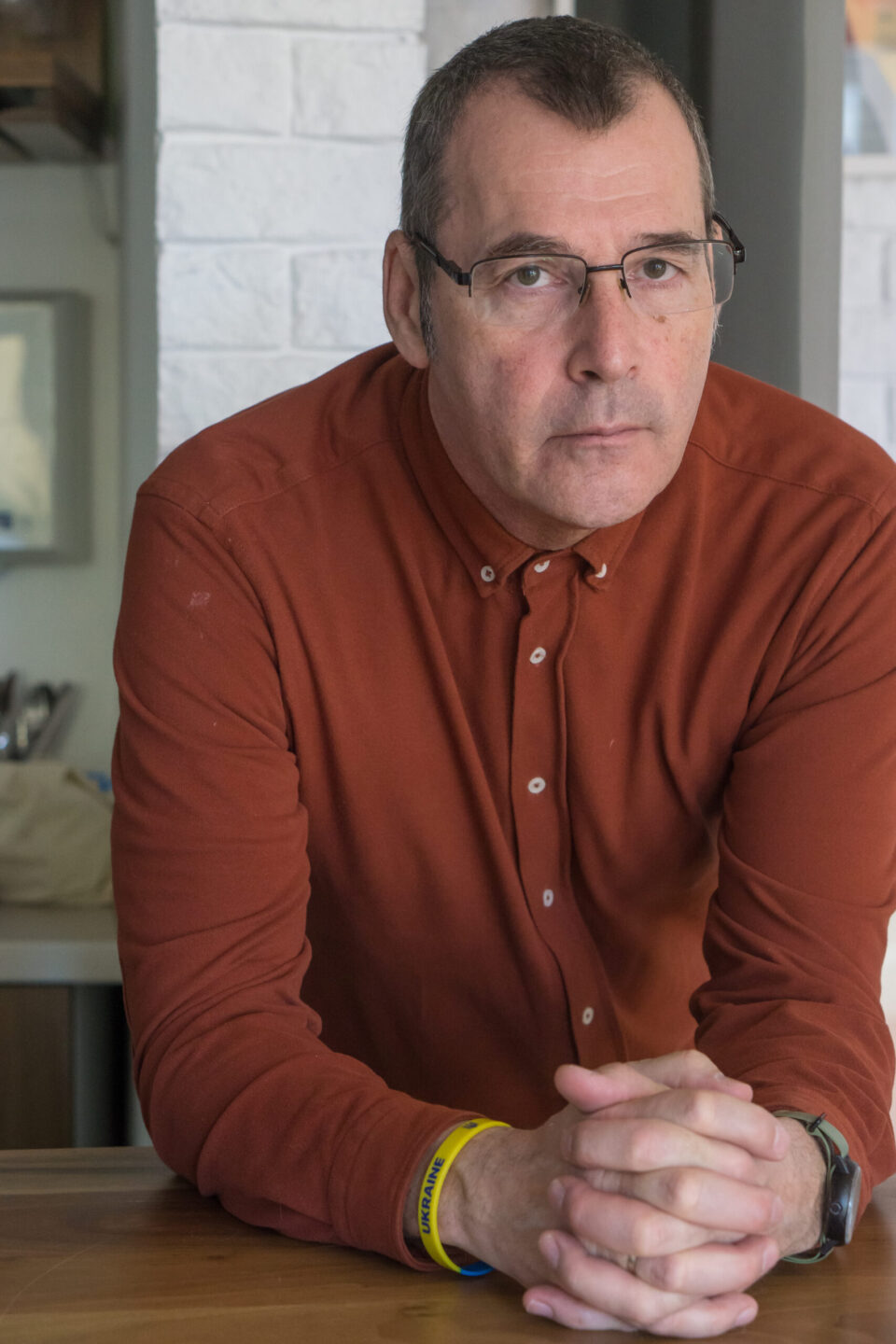I perceive myself exclusively through a minority position in a society that obviously chooses to go astray and works exclusively for the benefit of its harm
 In a conversation with the writer and creative director of the Krokodil Association, Vladimir Arsenijević, we covered the topics of social activism, lack of official support and growing violence in society.
In a conversation with the writer and creative director of the Krokodil Association, Vladimir Arsenijević, we covered the topics of social activism, lack of official support and growing violence in society.
Why is the Diplomacy & Commerce magazine award for the promotion of social activism given to the Krokodil Association important?
It has immeasurable importance, indeed. At the award ceremony, I said that awards are the least of the reasons why we do what we do, but it is also true that they are a tangible validation that all this still reaches the eyes and hearts of people and that, despite the loneliness we often feel, there are still those people who share with us the same values in which we firmly believe. In the toxic social environment in which we have been living in Serbia for years, even decades, this is proof that not everyone is defeated, as well as a strong impetus to continue and even boost our diverse activities.
How challenging is it to engage in social activism in Serbia? How does the system and society react to the activities of civil sector organizations of this type? Do you receive support or not?
There is no official support for us in today’s Serbia. On the contrary, there is misunderstanding, hatred, all kinds of accusations, unrestrained threats, a lot of insults and a whole series of institutional and non-institutional pressures. We are currently faced with about thirty slapp lawsuits because of which we spend our days in various courts defending ourselves against ridiculous accusations such as “insolent and reckless behaviour” or, let’s say, the accusation that, when we removed nationalist graffiti from the facade of the Institute of Chemistry, Metallurgy and Mining, which faces a children’s playground in the upper part of Mitićeva Rupa, “we damaged the external appearance of the building by applying white paint on the white wall”. Word for word!
We are currently faced with about thirty slap lawsuits because of which we spend our days in various courts defending ourselves against ridiculous accusations
Which projects of the Krokodil Association would you single out as the most significant and why?
We prefer to talk about initiatives because we try to act bottom-up and engage people to join us as much as they can. In this sense, the initiatives that we consider the most important are “Free the Streets/Free the People”, dedicated both to the removal of hateful writings on walls that have terribly contaminated our urban environments in recent years and instead painting legally allowed murals for which we hire the most eminent muralists and street artists, as well as advocating a campaign whose goal is to raise awareness among people in Serbia about this issue, but also to work on changes and amendments to the legislation that regulates this area. I would also like to mention the “Why do you say love but think war?” initiative, aimed at exposing and dismantling the hidden influence of political structures on the startling increase in violence in our society. There are also various charity activities such as collecting and distributing humanitarian aid for Ukrainian citizens in the areas most threatened by the war, the establishment of the first Ukrainian library in the KROKODIL Centre and the transformation of our residency for writers in Writer-in-Exile programme for Ukrainian writers.
Furthermore, with the help of people, we actively help Palestinian refugees from Gaza who have found refuge in our country, etc. All this is only part of our socio-political action, which is always two-way, because on the one hand, it is intended for those who need help, but at the same time, it actively fights against despondency, parochialism, auto-victimization, paranoia and an acute lack of elementary empathy, all of which are negative phenomena that have reached astonishing proportions in our society and once again made us a pariah among European nations. Of course, the KROKODIL Festival, the KROKODIL Centre and our Writers’ Residence remain among our most important activities. We are glad to bridge the artificial division and the invisible wall that supposedly separates the pursuit of culture from socio-political activism. For us, in the KROKODIL Association, there are no visible or invisible boundaries.

What needs to be done to eliminate the prejudices that exist towards activism in Serbia?
I thought it was quite shocking when, during the tide of deep and sincere pain caused by the massacre at the Vladislav Ribnikar Elementary School and the protests that started because of it, the whole thing was reduced to reality shows which were blamed as a sole culprit for something this horrifying and tragic that, unfortunately, happened in our country, became even possible and perhaps in a certain sense expected. Without any intention of absolving reality shows for all the awfulness they serve up every day, it was still obvious to me that the solution to the problem does not lie there because it goes much deeper.
Let’s not even go into a terrible environment that has been systematically created in Serbia since the year 2000, which affects our youngest generations so negatively, the streets that they walk on every day, which are dotted with the most hateful, narrow-minded and/or paranoid messages and unrestrained glorification of hardened war criminals and various others criminals, scoundrels and hooligans. Let’s just peruse textbooks and examine what we are teaching our children and the horrific image of the context in which they are growing up becomes clearer. Dubravka Stojanović wrote a truly disturbing book about it, an in-depth analysis of history textbooks in the last hundred years in Serbia under the telling title “The Past is Coming” (“Prošlost Dolazi“). If you are still doubtful about this, I highly recommend it to people to read it with an open heart and mind and then think carefully about everything in detail. Maybe then some things will become clearer to them. In that hard-to-imagine version of our future, the attitude towards activism and activists would be significantly different than it is today.
Could you share with us the Krokodil Association’s plans for the rest of 2024?
We recently launched a fund-raising campaign to prevent Aida Čorović from serving a two-month prison sentence for throwing an egg at the abomination of the portrait of the war criminal Ratko Mladić in Njegoševa Street. The reaction we got from people exceeded all our expectations – we collected seven times more funds than needed and thus decided to start a fund that we called Slapp Back, which we will use to help activists and all free-thinking people who find themselves in a similar predicament with the state and its repressive apparatus. It is a fantastic circumstance that everything happened in a very organic way because without the will of the citizens to participate in such an activity, none of this would be possible. We also continue to collect humanitarian aid for Palestinian refugees in Serbia as well as for Ukraine, where we will travel for the fourth time in the autumn.
The new, sixteenth KROKODIL Festival will take place from June 21 to 23, where we will once again showcase a truly exciting selection of local, regional and foreign writers who will present themselves during three evenings on the large KROKODIL stage in the amphitheatre in front of the Museum of Yugoslavia in Belgrade. We will have many other programmes going on during those three days at the Festival’s debate and children’s zone where daily activities will take place. Plus, there are many more interesting activities in the KROKODIL Centre.
The new, sixteenth KROKODIL Festival will take place from June 21 to 23, where we will once again showcase a truly exciting selection of local, regional and foreign writers
In your books, from “Potpalublje” (“Below Deck”) to “Duhovi” (“Ghosts”), you created a “portrait of a generation that has no chance”. Are there any chances for today’s generations to continue moving forward from that point or is it also doomed to stagnate?
It would be unfair and deeply embarrassing for someone like me, who has just entered the seventh decade of his life, to direct any criticism to the younger generations. You are always doomed to fail in that, because the world rests on them, whatever they are like. For me, following the tragic 1990s which should serve as a perennial warning and a corrective measure, the way young people have been growing up in Serbia is a very painful topic. I have often paraphrased Dragan Živadinov, who said that our grandchildren will eventually become like our real children. Only later did it dawn on me that these very dominant and aggressive segments of the young generation today, that is depressed young football hooligans and haters of everything and everyone, are the real children of their parents, who were wanted and carefully nurtured. This is a solid continuity and in that sense, we can’t be very hopeful. I perceive myself exclusively through a minority position in a society that obviously chooses to go astray and works exclusively for the benefit of its own harm and there, one could argue, not much can be done. The exception to this rule is to persevere devotedly in pursuing one’s cause, to give one’s best in that battle against windmills and to never give up.
Photos by: Imre Szabo